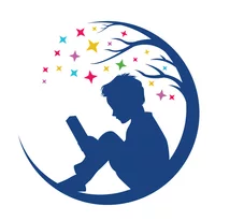I”ve had the privilege and adventure of personally working in 4th through 6th grade classrooms with over 700 pre-teens during the past five years to prove a simple point. My mission – shared by dozens of educators and health professionals who support this project – has been to demonstrate that on the road to becoming teenagers students both need and can learn brain-based coping skills. How do we know this? We simply ask students to tell us how well they are coping both before and after the project.

It is not enough to prove that in less than three-hours of class time we can successfully provide tools so that most pre-teen kids become more confident about their coping ability. We need to make this a part of every pre-teen”s education. “Would you like to go through adolescence again?” In nearly a decade of asking adult audiences this question, not one person has raised their hand. Educators and parents, having been teenagers, know about the distress associated with adolescent emotional changes and challenges. Now we can actually do something about alleviating unnecessary stress and suffering in this period of youth.
Neuroscience is helping us to better understand how brain functions dictate patterns for getting over our upsets, stress, and anxiety. We have a brief “window of opportunity” to reach pre-teens at a time when they are experiencing heightened self-consciousness and worry how OK they really are. This comes at a time of developing brain changes during middle school when high-risk behavior, erosion of self-acceptance, and emotional confusion become commonplace.
As a result of developing and testing brain-based coping skills theory using a preventive, educational project, we seek to empower kids to develop and practice healthy, brain-based coping methods. We invite visitors to our project website to make use of these resources and information at home and in classrooms. We are delighted with your interest in this positive project and invite comments and questions by teachers, school staff and parents, as well as the pre-teen kids in their care.
What does “brain-based coping skills” really mean?

Brain Works Project director Ronald Brill helps 4th graders understand how the brains of bullies lead them to hurt other students.
We know that coping skills are something learned . We also need to realize that some of our coping responses to upsets or stress are “instinctive” or automatic. What we try to do when teaching kids higher thinking brain coping skills involves using their thinking coping brain which can learn to regulate the more primitive brain impulses that tend to take over when we feel we”re threatened or in distress. Instinctive coping impulses are operating when we were born. But as our brain matures during pre-teen years the thinking brain can use other ways of coping with stress. The Brain Works Project emphasizes that only by understanding functions of our thinking and two “instinctive” coping brains can we learn to manage protective “survival” responses that often add to our distress, rather than reduce it. (Read more about how our three coping brain functions – reptilian, emotional and thinking – interact by “seeing them” as parts of our coping Brain Team.)
Ronald R. Brill, Director
Brain Works and Coping Skills for Kids project
February, 2008
Find out more about the Brain Works Project
7 Key Factors for Teaching Kids Brain-Based Coping Skills
Read What Pre-Teens Say about the Brain Works Project






